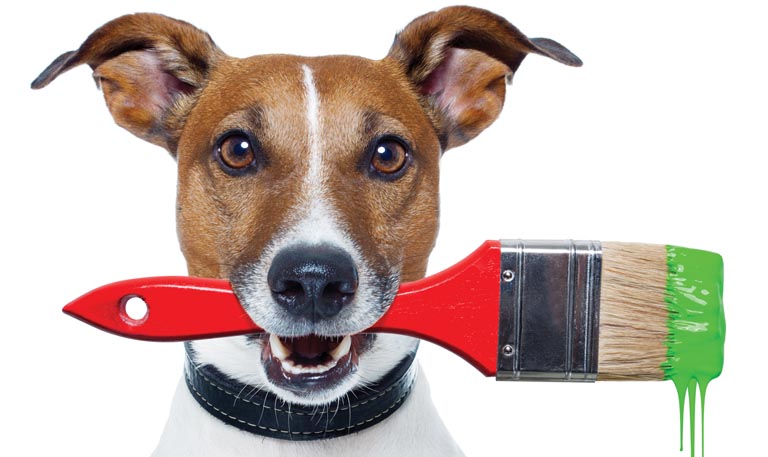I learned I was silly at eight years old. My parents worked hard on our little farm and at other jobs. They had neither the time nor inclination for children, so I was raggedy, unkempt, and that year had ringworm and a shaved head. All in all, a grubby child. My fourth grade teacher, Ms. Fowler, did not like grubby children.
The first week of school a cardboard schoolhouse appeared on the classroom wall with a window for each student. Each window had a photo of one of us and a shutter that was open or closed. As we entered the room Ms. Fowler inspected us. If we failed, our door was closed. My door was closed the entire year.
That year I frequently ended up alone in the hall, which I enjoyed. So, I would laugh. I wasn’t particularly noisy, just a silly giggler. As an adult I can link my behavior to a defense to calm anxiety. I learned that being silly was a secret power that I could safely use even when I was alone.
My mother liked to criticize me but as an adult I got tired of it. So, whenever she started to go negative in public, I would put a napkin, scarf, or purse on my head. I guessed her embarrassment at such a silly daughter would be stronger than her need to point out my faults. I was right.
Silly is regarded as both negative and positive by definition—mindless, loopy, frivolous, soft in the head, dippy, dotty, laughable, and childish are some synonyms. I think of silly as a twinkle, a refusal to take things seriously, especially small things. As a parent, serious things were dangers to health, or possible prison. Everything else could eventually be laughed at. As an elder everything short of death has a funny side.
Just like laughter, appropriate silliness is good for our health. Being silly indicates confidence in who we are and a kind of innocent pride. Being silly with friends creates bonds, memories, and trust. If we are unafraid to be silly, we can diffuse tension, keep perspective, and allay anxiety in a group or alone. There are many ways to express our inner silliness, here are some of my favorite:
-
Music and dancing: Certain music brings out the silly in most of us, whether it is the Hokey Pokey or “Help Me Rhonda.” The Beach Boys and the Beatles helped me clean house. Jules Feiffer cartoons taught me the Dance to Morning. Louis Armstrong’s version of “It’s a Wonderful World” always makes me smile.
-
Living in Technicolor: I surround myself in color—clothes, pillows, socks, hats, art, nails, and cars. During COVID I covered my grey Subaru with round, magnetic polka dots in lavender, aqua, pale yellow, white, and light green. I claimed my grandchildren did it.
-
Emojis: I like using emojis and cartoons in texts because silly is whimsical.
-
Art: Creativity is an important element of silliness. Clay, paint—any medium—lets us bring our identity to the surface. This is why children love art and only give it up when they feel they have no talent. Any art show reveals lots of silliness and people buy it.
-
Language: There are so many silly words, don’t give them up! My favorite kind are onomatopoeias, which means words that sound like what they describe like bark, chirp, fizz, zap, and plop. A dear friend made up the word, “tickitypoo” for good feelings. Our President says, “malarkey,” and there are other silly words like bamboozle, collywobbles, scrumptious. My favorite is “wabbit,” which is Scottish for exhausted.
-
Children and animals: Grandchildren, especially when they are little, can help you be silly, or remember what you loved to play with or do as a child. Yes, make soap bubbles! Animals, especially baby animals, are an endless source of silly. YouTube is full of silly animal videos. I think of puppies when I’m at the dentist or before any possibility of pain.
-
Sex and love: Yes, even sex is silly because kissing and such is awkward and messy. I often find myself giggling during sex because it is such fun, but I have had to explain myself.
-
And More…: Once, while doing research at a jail the incarcerated women showed me how to make grilled cheese sandwiches with an iron. They were required to iron the uniforms and did it in a shared common room. They saved the bread and cheese that came with every meal, made designs on the bread with various devices, and had hot pocket parties.
Good silly is not noisy nor rude; think of it as mischievous. Still, silliness can irritate some people. I have found some men, from my father onward, to be sensitive to public silliness. It may be that silly creates embarrassment. Personal history increases or decreases our tolerance of silliness.
The best silliness is when it helps everyone around you, from family and friends to a nurse or a clerk. You will feel it pop on, unbidden, to lighten the moment. As I look back, I know that the laughter in the hall and the emotional release of silliness I learned in fourth grade helped me have a very happy life. When you diligently practice turning your twinkle lights on at home, they will be available for the rest us. I can imagine Forrest Gump might say, “Silly is as silly does.”
Jennifer James has a doctorate in cultural anthropology and master’s degrees in history and psychology. She was a professor in the Department of Psychiatry and Behavioral Sciences at the University of Washington Medical School. Jennifer is the founding mother of the Committee for Children, an international organization devoted to the prevention of child abuse worldwide. You can read more articles by Jennifer James here.


